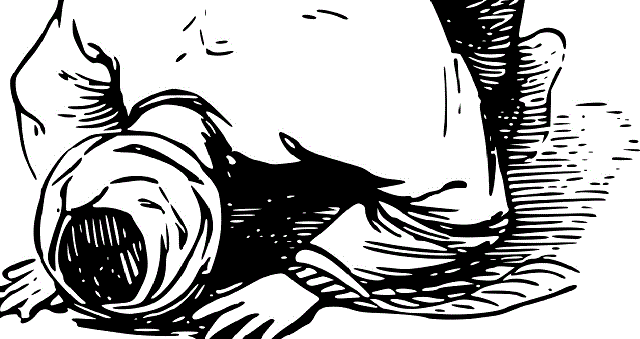
When Abraham was 99 years old, God appeared to him, announcing the mitzvah of brit milah (circumcision).
“I am God Almighty. Walk before Me and be complete. I will make a covenant (brit) between Me and you.” (Gen. 17:1-2)
What was Abraham’s immediate reaction? He literally fell on his face. The Talmud (Nedarim 32b) writes that when Abraham heard God command him, “walk before Me and be complete,” his entire body began to shake. Abraham was confused and mortified. “Perhaps there is something improper in my actions?” But Abraham calmed down when God began to command him to circumcise himself and his household.
Why was Abraham comforted to hear that God was referring to brit milah?
A Higher Prophetic Level
We perceive the outside world through various gateways. These include the five physical senses, and our powers of intellect and reason. And there exists an additional portal — the faculty of prophecy. We cannot truly fathom this unique gift, the product of a hidden connection between the soul and the body. For this reason, prophecy, unlike pure intellectual activity, involves the powers of imagination, desire, and other baser aspects of the mind.
When God charged Abraham, “Be complete,” Abraham feared that he was lacking in his intellectual dedication in serving God. This would be a fault for which a righteous individual like Abraham would certainly be held accountable.
But when Abraham heard that God was referring to the mitzvah of circumcision, his concerns were put to rest. Brit milah serves to refine the special connection between body and soul. It deals with a sphere that is beyond human comprehension — and accountability. God’s command was not that Abraham needed to rectify some error or character flaw, but rather to bestow upon him a unique covenant, one which would enable him to attain a purer, higher level of prophecy.
With this gift, Abraham would be able to “walk before God.” The word hit'halech (‘walk’) is in the reflexive tense; Abraham would be able to “walk himself” as it were, and progress on his own, before God.
(Gold from the Land of Israel, pp. 37-38. Adapted from Olat Re’iyah vol. I, pp. 396-397)





